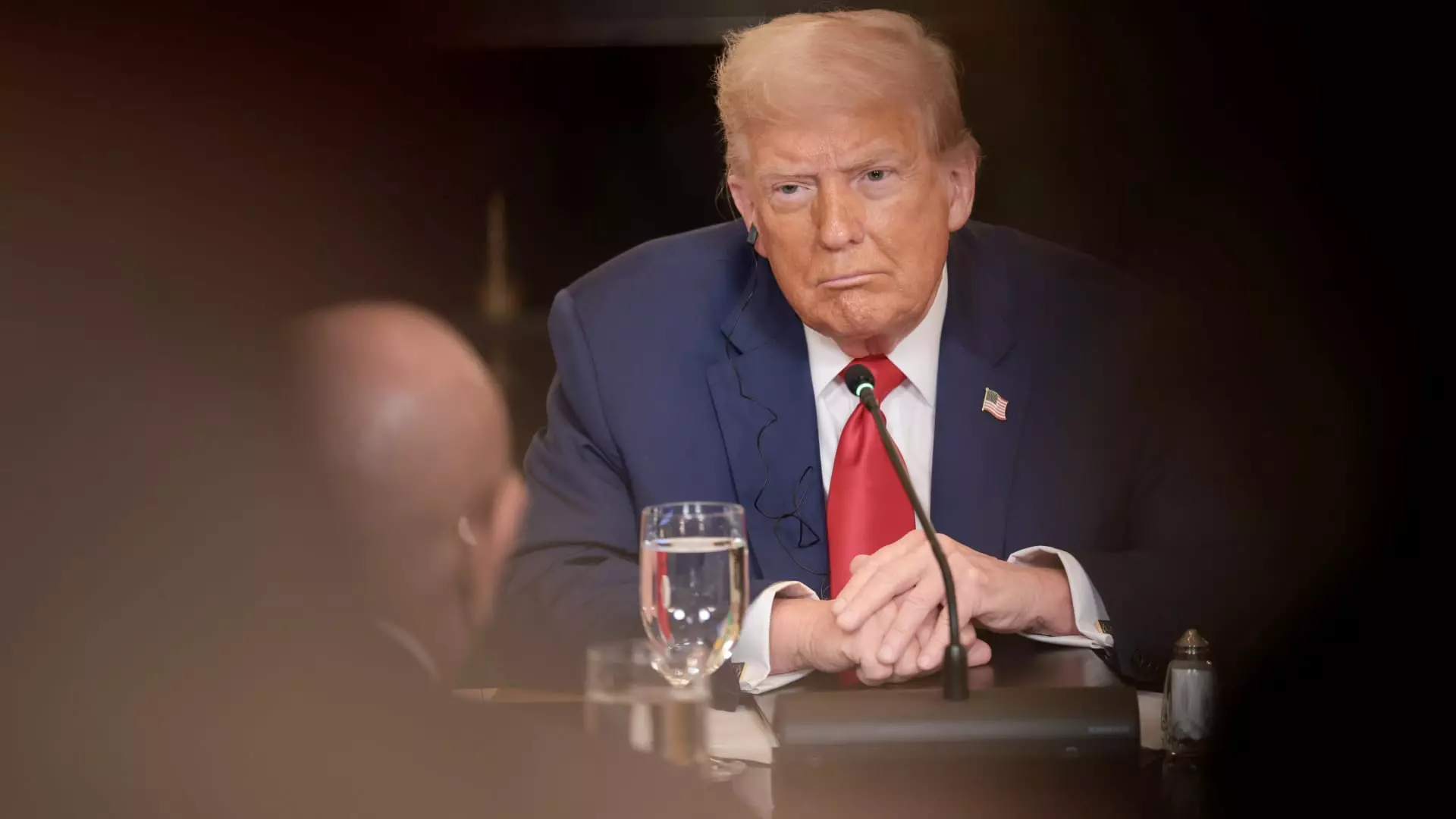The recent flap over Jeffrey Epstein’s case exemplifies a fundamental struggle within political and judicial realms: the battle between transparency and concealment. When President Donald Trump publicly called for the unsealing of grand jury transcripts related to Epstein, it was more than just a political stunt; it was a provocative stand against the encroaching shadows that cloaked Epstein’s criminal network for years. The demand for unsealed documents symbolizes a broader plea for accountability—a cry that powerful figures should not be immune from scrutiny simply because they are shielded by status or influence.
This controversy underscores a disturbing reality: the justice system’s inability—or perhaps unwillingness—to fully disclose the truth about those connected to high-profile cases involving child exploitation and elite privilege. The secrecy surrounding grand jury transcripts isn’t merely procedural; it is a barrier protecting the powerful from the consequences of their actions. When such information is kept from public view, it fuels suspicion, conspiracy theories, and fears that the elites manipulate justice to serve their interests. Trump’s insistence on transparency challenges this status quo, raising critical questions about whether the judiciary’s confidentiality rules serve justice or obstruct it.
Corruption and the Illusion of Justice
The Epstein case exemplifies the corrosive influence of corruption—where wealth, fame, and political ties blur the lines of morality and the rule of law. Epstein’s network implicated some of the most prominent figures globally, yet the orchestrated silence surrounding his case suggests an infrastructure designed to shield the well-connected. The claims of a “client list,” allegations of blackmail, and widespread conspiracy theories have only deepened public distrust.
The fact that Epstein supposedly had a “client list” remains a tantalizing mystery—whether it exists or not. The suspicion that influential individuals may have been involved in or benefited from Epstein’s illicit activities is not unfounded, especially considering the social circles he traversed. However, the lack of transparency and the refusal to release comprehensive evidence serve only to reinforce the narrative that powerful people are above the law. Such a culture of opacity erodes public confidence, fosters cynicism, and perpetuates a dangerous sense that justice is reserved for the unconnected and powerless.
Trump’s push for disclosure—arguably one of the few attempts to pierce this veil—is an impulsive challenge to entrenched secrecy. Yet, it remains unclear whether the system will truly open its doors or if this is merely political theater. The legal constraints on releasing grand jury transcripts highlight an inherent tension: the need for confidentiality to protect witnesses against potential harassment and intimidation versus the public’s right to know the truth.
Partisan Politics and the Manipulation of Justice
The Epstein case has long been weaponized in political discourse, often serving as a rallying point for conspiracy theories and partisan attacks. Trump’s involvement—initial friendship and subsequent distancing—adds a complex layer to this narrative. His call to unseal documents is framed as a crusade against “The Scam” of alleged Democratic malfeasance, yet it also reveals the political exploitability of Epstein’s story. Every new revelation becomes a battleground, turning what should be a straightforward pursuit of justice into a political spectacle.
In the polarized landscape of American politics, the issue of Epstein’s case exposes how the machinery of justice is sometimes manipulated to serve partisan ends rather than the common good. While some Republicans advocate for full transparency—viewing it as a moral imperative—others, wary of implicating their own ranks, prefer silence. Democratic voices, meanwhile, often see any effort to unseal documents as potentially damaging and seek to protect sensitive interests. This divisive dynamic hinders a genuine pursuit of truth and perpetuates a climate of suspicion.
The debate also raises ethical questions about leadership. When public figures like Trump draw on conspiracy narratives to deflect or dismiss calls for transparency, it underscores a troubling disregard for the principle that justice should be impartial and accessible. Power, in this context, becomes a shield—a tool to suppress inconvenient truths rather than confront them.
The Consequences of Official Secrecy and Public Distrust
Ultimately, the debate over Epstein’s files exposes a deeper malaise rooted in systemic secrecy and the erosion of public trust. The Justice Department’s refusal to release documents purportedly shielding subjects from scrutiny is not just procedural stubbornness; it is a reflection of a flawed system that prioritizes protocol over justice. When official investigations dismiss credible allegations or actively conceal evidence, it fosters disillusionment and encourages conspiracy theories that fill the vacuum of information.
The FBI memo’s assertion that Epstein’s case revealed no incriminating list or blackmail evidence echoes a dangerous complacency, perhaps an attempt to quell lingering questions rather than address them. Yet, history shows that opacity only fuels suspicion, especially in cases involving child exploitation and elite complicity. The public’s faith in institutions diminishes when truth seems buried beneath layers of legalese and political convenience.
The Epstein saga makes it painfully clear that justice is often contingent on who has the power to demand transparency. Until the system recognizes that truth must transcend political and social boundaries, the cycle of suspicion and injustice will persist. For a society that claims to value fairness and the rule of law, these unanswered questions serve as a stark reminder that the fight for open justice remains urgent—and unfinished.


Leave a Reply